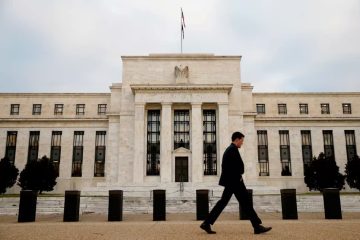SEBI proposes tighter rules for offshore derivatives
MUMBAI The Securities and Exchange Board of India’s (SEBI) on Monday proposed to tighten rules on offshore derivative instruments (ODIs) by imposing “regulatory fees” and prohibiting the sale of products that track derivatives, unless issued for the purposes of hedging.
If adopted, SEBI’s plan would be the latest stringent action against controversial products created by banks to track Indian derivatives, shares and debt products and then sold to overseas investors.
In a consultation paper, SEBI proposed that ODI issuers be given until Dec. 31, 2020 to wind down these products, unless they were undertaken for hedging purposes. ODIs tracking equities and debt would be spared.
SEBI also proposed a fee of $ 1,000 every three years, starting from April 1 this year, on ODI issuers and each investor, in order to “discourage the ODI subscribers from taking the ODI route” and push them instead to register as foreign portfolio investors.
SEBI said its proposals were being made “to enhance the transparency in the process of issuance and monitoring of ODIs,” and set a June 12 deadline for comments from interested parties.
Although their popularity has waned, ODIs has still a significant source of investment because they have less stringent registration requirements than investing directly.
SEBI estimates the notional value of existing ODIS on equities, debt and derivatives at 1.69 trillion rupees ($ 26.21 billion) by April, down from 2.3 trillion in January 2016.
But the investments, steered mainly into products called participatory notes (P-notes), have stirred regulatory suspicion that they are a conduit for money laundering or channeling of unaccounted wealth held by Indians abroad into domestic markets.
SEBI has tightened ODI rules since 2014, including mandating that issuers provide more information about investors, while the government has moved to amend tax exemption treaties with countries such as Mauritius and Singapore.
“This is the last nail in the coffin for P-note issuance. The government has been cracking down on investments through P-notes and my feeling is that they will keep tightening the rules until this is completely dead,” said Amit Maheshwari, a managing partner at law firm Ashok Maheshwary & Associates.
“This is also the right time for these tighter regulations because markets are at a high and dependence on foreign investments has reduced.”
Indian share markets have hit a series of record highs this month, fuelled by strong domestic retail investment.
But India is still popular with foreign investors, who have plowed $ 8 billion into shares this year, and a net $ 12.6 billion into debt.
($ 1=64.4900 Indian rupees)
(Reporting by Rafael Nam, Suvashree Dey Choudhury, and Abhirup Roy; Editing by Clarence Fernandez)


